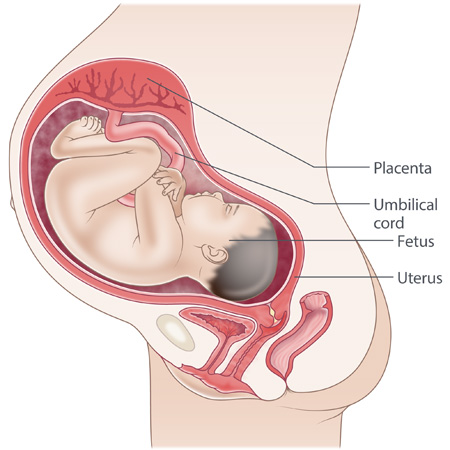
37th Week of Pregnancy: A Comprehensive Guide
The 37th week of pregnancy marks an exciting milestone as you approach the end of your journey. Your baby is rapidly developing and preparing for the outside world, while your body undergoes significant changes to accommodate the impending birth. This article provides a comprehensive guide to the 37th week of pregnancy, covering fetal development, maternal symptoms, prenatal care, and tips for a comfortable and healthy pregnancy.
Fetal Development
At 37 weeks, your baby weighs approximately 6 pounds and measures around 19 inches in length. Their physical features are well-defined, and they have a full head of hair. The baby’s lungs are fully mature, and they are practicing breathing movements in preparation for birth.
Other significant fetal developments during the 37th week include:
- Brain Development: The baby’s brain continues to grow and develop rapidly, with an increase in the number of neural connections.
- Eye Development: The baby’s eyes are fully developed and can open and close. They can also track moving objects and respond to light.
- Bone Development: The baby’s bones are becoming harder and stronger, but the skull remains soft and flexible to allow for passage through the birth canal.
- Fat Deposition: The baby continues to gain fat, which helps regulate their body temperature and provides energy.
Maternal Symptoms
As your pregnancy progresses, you may experience a range of physical and emotional symptoms during the 37th week. These symptoms can include:
- Increased Braxton Hicks Contractions: Braxton Hicks contractions are practice contractions that help prepare your uterus for labor. They may become more frequent and intense as you approach your due date.
- Pelvic Pressure: As the baby descends into the pelvis, you may experience increased pressure and discomfort in your pelvic area.
- Frequent Urination: The baby’s head pressing on your bladder can lead to more frequent urination.
- Backache: The weight of your growing belly can put strain on your back, causing aches and pains.
- Leg Cramps: Leg cramps are common during pregnancy, especially at night.
- Hemorrhoids: Increased pressure on the veins in your rectum can lead to hemorrhoids, which are swollen and painful veins.
- Swelling: Fluid retention can cause swelling in your hands, feet, and ankles.
- Mood Swings: Hormonal changes and the anticipation of labor can lead to mood swings and emotional sensitivity.
Prenatal Care
Regular prenatal care is essential during the 37th week of pregnancy. Your doctor will monitor your progress and ensure that both you and your baby are healthy. Prenatal care appointments typically include:
- Physical Examination: Your doctor will check your weight, blood pressure, and urine. They will also measure your belly to assess the baby’s growth.
- Ultrasound: An ultrasound may be performed to confirm the baby’s position and estimated weight.
- Cervical Exam: Your doctor may perform a cervical exam to check for dilation and effacement, which are signs that labor is approaching.
- Group B Streptococcus (GBS) Screening: This test checks for the presence of GBS bacteria in your vagina and rectum. If GBS is present, antibiotics will be administered during labor to prevent infection in the baby.
Tips for a Comfortable and Healthy Pregnancy
To ensure a comfortable and healthy pregnancy during the 37th week, consider the following tips:
- Get Plenty of Rest: Rest is essential for both you and your baby. Make sure to get at least 8 hours of sleep each night and take naps when you feel tired.
- Stay Hydrated: Drink plenty of fluids, especially water, to prevent dehydration.
- Eat a Healthy Diet: Continue to eat a balanced diet that includes plenty of fruits, vegetables, and whole grains.
- Exercise Regularly: Moderate exercise, such as walking or swimming, can help improve circulation and reduce back pain.
- Manage Stress: Stress can affect your pregnancy and labor. Find healthy ways to manage stress, such as yoga, meditation, or spending time in nature.
- Listen to Your Body: Pay attention to your body’s signals and rest when you need to. Don’t push yourself too hard.
- Prepare for Labor: Start packing your hospital bag and make arrangements for childcare for your other children.
Conclusion
The 37th week of pregnancy is a time of both excitement and anticipation. Your baby is rapidly developing and preparing for the outside world, while your body undergoes significant changes to accommodate the impending birth. By understanding the fetal development, maternal symptoms, and prenatal care during this week, you can ensure a comfortable and healthy pregnancy and prepare for the arrival of your little one.